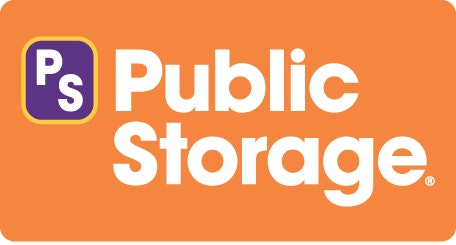Downsizing by households, including moves to rental houses, has led to interim positive performance, but longer-term consolidation in the industry should bode well for the storage industry.
Public Storage (NYSE:PSA) should benefit from the gain in market share at the expense of smaller competitors, given its size and pricing power. Its reach spans 2,078 storage facilities across the U.S. and 189 storage facilities in Europe.
Goldman Sachs Group, Inc. (NYSE:GS) has reiterated that the housing market has more room to run. Via Goldman’s detailed housing analysis, the firm finds that even if rates move higher the housing market will continue its rebound. According to Goldman Sachs Group, Inc. (NYSE:GS), even if 30-year fixed-rate mortgage rates reach 3.8%, the typical American home buyer can afford a $279,000 house. That’s 45% more than the current price of homes.
In 2012, Public Storage (NYSE:PSA) acquired 10 self-storage facilities positioned in some of the best growth markets, including Florida, Georgia and California. The company has the balance sheet to make more of these strategic acquisitions, with some $17 million in cash and $130 million available under its credit facility.
Valuation
Public Storage (NYSE:PSA) trades around 22 times forward funds-from-operation (FFO) estimates, which is a 40% premium to the industry average, but I believe this premium is warranted given the REIT’s return on equity of 15.9% versus the industry average ROE of negative 5.1%. And although the stock is up nicely over the past five years, the REIT has managed to continue generating impressive free cash flow all along the way. Also, analysts project robust growth in FFO, going from $5.93 in 2011 to $6.68 in 2012, and then an expected $7.17 in 2013 and $7.40 in 2014.
Going into the second quarter there were a total of 18 hedge funds long the stock, which was a 22% decrease from the first quarter. AEW Capital Management holds the largest position in Public Storage (NYSE:PSA), worth around $230 million and making up 5.7% of its 13F portfolio (check out AEW’s portfolio).
Other REITs
Sovran Self Storage Inc (NYSE:SSS), another storage REIT, has ownership interests in some 461 properties across 25 states. Based on facilities owned, Sovran is the fourth-largest U.S. operator of self-storage properties, operating under the trade name Uncle Bob’s Self-Storage, and across the U.S. in the East, Midwest, Arizona and Texas. One of the advantages of Sovran is that it offers ancillary services, including Uncle Bob’s tuck move-in program that assists customers. Sovran pays a dividend yield of slightly less than 3.0%.
First quarter FFO came in at $0.84, compared to $0.75 for the period last year. This comes as average occupancy was up to 87.4% from 82.1% for the same period last year, and despite average rental rates essentially being flat year-over-year. Going forward, Sovran might be disadvantaged when it comes to making strategic acquisitions Where Public Storage has a debt-to-equity ratio of less than 2%, Sovran’s is close to 85%. However, Sovran did manage to recently open a new $175 million credit facility, but 2013 debt maturities will be higher than $100 million.
The billionaire hedge fund Capital Growth Management was one of Sovran’s top hedge fund shareholders (check out Heebner’s top stocks).
Public Storage’s little brother
PS Business Parks Inc (NYSE:PSB) focuses on office and industrial properties. PS Business saw occupancy in the first quarter of 2013 average 89.3%. Good news for PS is also good news for Public Storage; remember that Public Storage (NYSE:PSA) owns 41% of the REIT.
PS Business’ two markets, office and industrial, should both perform well with a rebounding economy, where demand will increase for office space and industry related activities. However, one potential headwind is that through 2014, 44% of its total rent income leases come up for renewal.
PS Business Parks also has one of the strongest balance sheets in the industry, with cash and cash equivalents of $12.9 million and $250 million under its unsecured credit facility. PS Business also has a solid ROE of 7.9%, although not quite as positive as Public Storage.
Going into 2013 there were only 12 hedge funds long the stock, a 9% increase from the previous quarter. Billionaire Jim Simons of Renaissance Technologies had the largest position in the stock (see RenTech’s top small cap picks).
Bottom line
Public Storage (NYSE:PSA) is the leader in the storage market and it pays an impressive 3.3% dividend yield. The REIT has been on a tear over the past few years, but there’s still room to move higher. With a leading position in the storage market, the company should preform well as the housing market rebound leads to increased occupancy.
The article A Great Place to Store Profits originally appeared on Fool.com and is written by Marshall Hargrave.
Marshall Hargrave has no position in any stocks mentioned. The Motley Fool has no position in any of the stocks mentioned. Marshall is a member of The Motley Fool Blog Network — entries represent the personal opinion of the blogger and are not formally edited.
Copyright © 1995 – 2013 The Motley Fool, LLC. All rights reserved. The Motley Fool has a disclosure policy.





